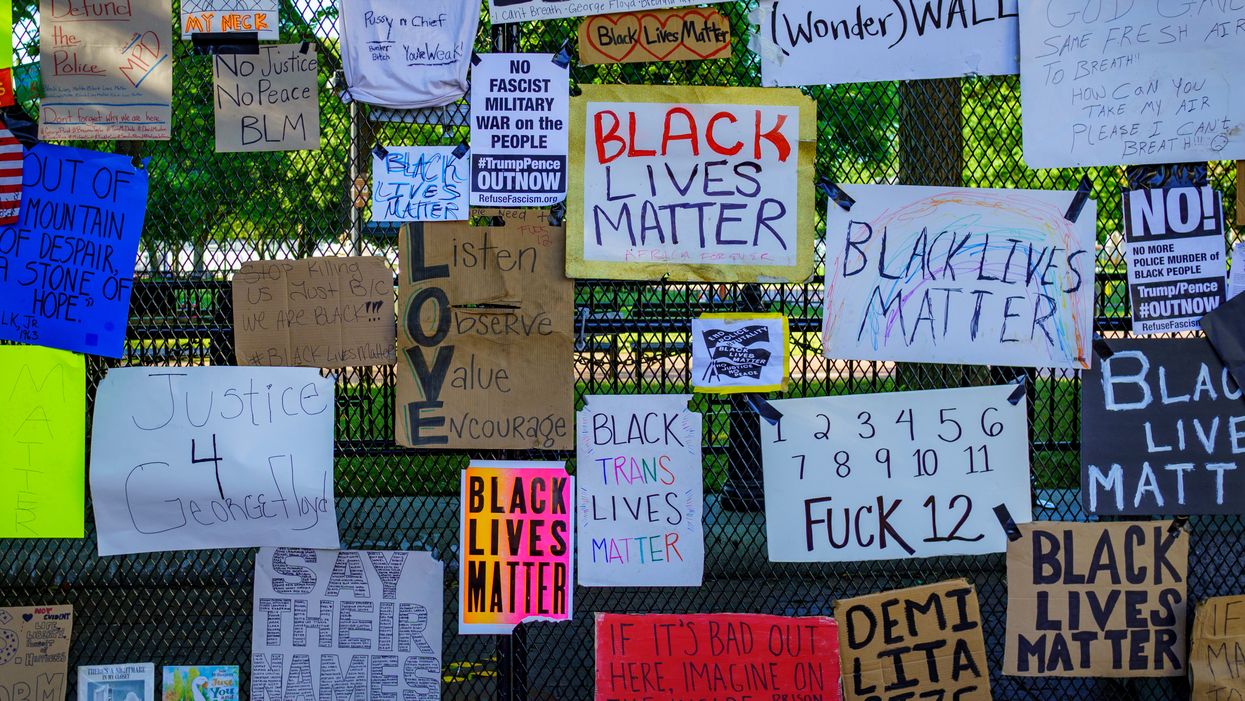Now is not the time to leave any power on the table.
On the day before one of the most important elections of our lifetimes, my message to voters is simple: Vote! By any means necessary. Some may doubt the integrity of our democracy or that their one vote will have an impact on any given race. But know this: Voting is the way communities, especially Black and Latino communities, can translate their year-long protest of state violence into power that transforms the priorities of our nation.
In making the decision to vote this year, we must recognize it's been a tumultuous year. The murders of George Floyd, Ahmaud Arbery, Rayshard Brooks, Breonna Taylor and others — as well as the global coronavirus pandemic — disproportionately claimed the lives of Black people. This year's ballot isn't just about the presidential candidates. It's also about the very issues that affect our communities: health care, education, racial justice and the economy.
This year, the nation will also elect thousands of sheriffs, judges and district attorneys who have massive power over arrests, jail conditions and immigration enforcement. These races are critical in states like Georgia where the Advancement Project National Office partnered with New Georgia Project to launch a Know Your Sheriffs campaign, which educates voters on the power and role law enforcement officials have, and the power communities have to elect sheriffs that reflect their values.
To be sure, many voices have attempted to undermine the confidence Americans have in our democracy. By repeating patently false claims about voting, some have sought to sow distrust. We must understand such rhetoric is motivated by a desire to suppress the vote of Black and Latino communities. If voters of color stay home, their power and their representation will be thwarted after a successful year of building power in the streets around the globe.
Here are the facts. The protest power of Black and Latino communities has already made change once thought impossible. Breonna's Law has banned no-knock warrants in Louisville, Ky. The Minneapolis City Council started the dismantling of their Metropolitan Police Department. There's been a successful national movement to remove police from schools, an effort young people of color worked on for years.
Since 2000, eligible voters of color have accounted for more than 75% of the total U.S. electorate growth, with most of that growth coming from Black, Hispanic and Asian communities. Don't stop now. Voting is another megaphone to ensure that the voices of these communities are heard.
If you encounter any issues at the polls or need help, call the national Election Protection Hotline at 1-866-OUR-VOTE. The Advancement Project National Office will also be on the ground in Pennsylvania, Virginia, Florida and Georgia. Share your voting story with us on social media using #VoteBAMN (Vote. By Any Means Necessary).
Gilda Daniels is the litigation director for the Advancement Project National Office. Read more from The Fulcrum's Election Dissection blog or see our full list of contributors.



















